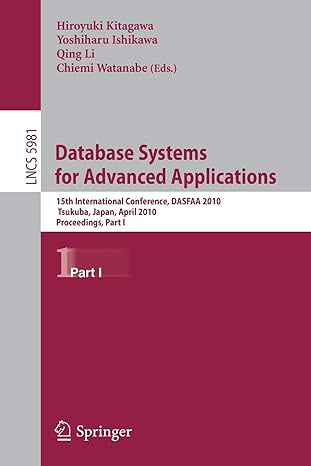Question
Five batch jobs, A through E, arrive at a computer center at essentially the same time. They have an estimated running time of 15, 9,
Five batch jobs, A through E, arrive at a computer center at essentially the same time. They have an estimated running time of 15, 9, 3, 6, and 12 minutes, respectively. Their (externally defined) priorities are 6, 3, 7, 9, and 4, respectively, with a lower value corresponding to a higher priority. For each of the following scheduling algorithms, determine the turnaround time for each process and the average turnaround for all jobs. Ignore process switching overhead. Explain how you arrived at your answers. Use the FCFS method (run in order 15, 9, 3, 6, and 12), assume only one job at a time runs until it finishes, and all jobs are completely processor bound.
1) What is the Response Ratio of the data above (not the definition)? 2) What Queueing Analysis observation is made on the data above considering priority scheduling in which priority is based on service time. 3) Make an Average Time vs Actual Job Time chart. 4) Make a processor utilization chart. I.e. (Turnaround time or Residence time divided by Average Service Time) vs Comprehensive Processor Duration Time.
Step by Step Solution
There are 3 Steps involved in it
Step: 1

Get Instant Access to Expert-Tailored Solutions
See step-by-step solutions with expert insights and AI powered tools for academic success
Step: 2

Step: 3

Ace Your Homework with AI
Get the answers you need in no time with our AI-driven, step-by-step assistance
Get Started


